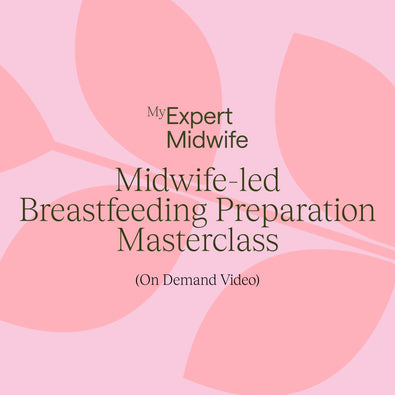Author: Debs Neiger Independent Midwife
A rainbow baby is a baby born after the loss of a previous baby, either via early or late miscarriage, still birth or neonatal death. It refers to the new rainbow (baby) after a dark and stormy time (of loss). Many people like this term, but it does not resonate well with everyone. Some people feel that they don’t want the time around the baby lost defined as a ‘storm’ with all the negative associations that might bring. And that is ok too.
People often assume that being pregnant after loss would be the cause of unbridled joy and gratefulness, but for most families, these pregnancies and births bring complex and complicated emotions, as well as clinical concerns that may complicate a new pregnancy and birth.
Everyone copes differently with carrying, birthing or caring for a rainbow baby, and that is perfectly ok, but difficult to cope with. Especially if you and your partner have different coping strategies. Grief is not a linear process and might lead you down paths that very much extend into this new chapter, in unexpected and often difficult ways.
Some of the emotions that might come up for you when contemplating pregnancy, being pregnant or having birthed your new baby are:
- Fear: the fear of the unknown, the fear of another loss, the fear of not coping, the fear of not being heard about concerns, fear of getting too attached in case of a new loss
- Sadness: remembering the previous baby lost, remembering the milestones NOT reached last time when reaching them this time
- Guilt (rational or not): guilt over what could have been different last time, guilt over loving this baby, feeling guilty for not ‘coping better’, guilt for stress to affect the unborn baby or your mothering
- Disassociation: feeling very disconnected from this pregnancy/baby, perhaps as a protective measure to avoid being hurt badly by loss again, or as a trauma response being triggered by a new pregnancy
- General anxiety: feeling anxious without necessarily being able to pinpoint what about, anxiety over health, baby’s movements, etc
- Hypervigilance: always being on the lookout for things going wrong, inability to relax for fear of something happening
This all sounds very daunting and negative, but of course elation, joy, relief, triumph and happiness are usually mixed into the stew of emotion and may take over mostly or completely. It is different for everyone!
There are also things you can do to pre-empt some of the struggle, and minimise the difficult parts of the journey, while still acknowledging that your lost little ones are part of you, just like your living child(ren).
- Find your support network: this might be understanding friends and family, support groups, either online or in person
- Let yourself feel the feelings. Verbalise them and fall back on your support network to help with them. If you find that friends and lay support are not helpful, more therapeutic help from a counsellor/therapist may be helpful
- Find appropriate maternity care for yourself. For care after experiencing a loss, the standard pathways of care may not work well for you. You may want more input and appointments with your HCPs, you may feel the need for continuity of carer (which has been shown to improve outcomes in general), you may need a known to you HCP who knows your story, so you don’t have to recount it over and over again, who knows what is important to you and what triggers your anxieties and fears. Many trusts offer this to parents after loss, but many people still find that the service leaves things to be desired. Some NHS trusts have built really good systems to enable a comprehensive multidisciplinary approach to care that seems to work extremely well, such as St Mary’s Hospital Manchester with their Rainbow Clinic for care after a stillbirth. Independent midwives can also be indispensable in providing one to one continuity of carer in your own home
- Ask for help. Don’t stay quiet and make do when you feel that you could benefit from more help
The bottom lne is, this journey is different for everyone, and that is ok. You deserve to hiave happiness though, and feeling joy over this baby does not take away from your love for the baby lost.
Here are some resources for finding support to navigate the path of expecting a Rainbow Baby:
Pregnancy after loss support:
https://pregnancyafterlosssupport.org
A comprehensive support directory:
https://www.ourmissingpeace.org/support-directory/
Specialist counselling:
Some support for siblings:
https://www.sayinggoodbye.org/information/children/
https://mft.nhs.uk/saint-marys/services/maternity-services-obstetrics/antenatal-care/rainbow-clinic/


















